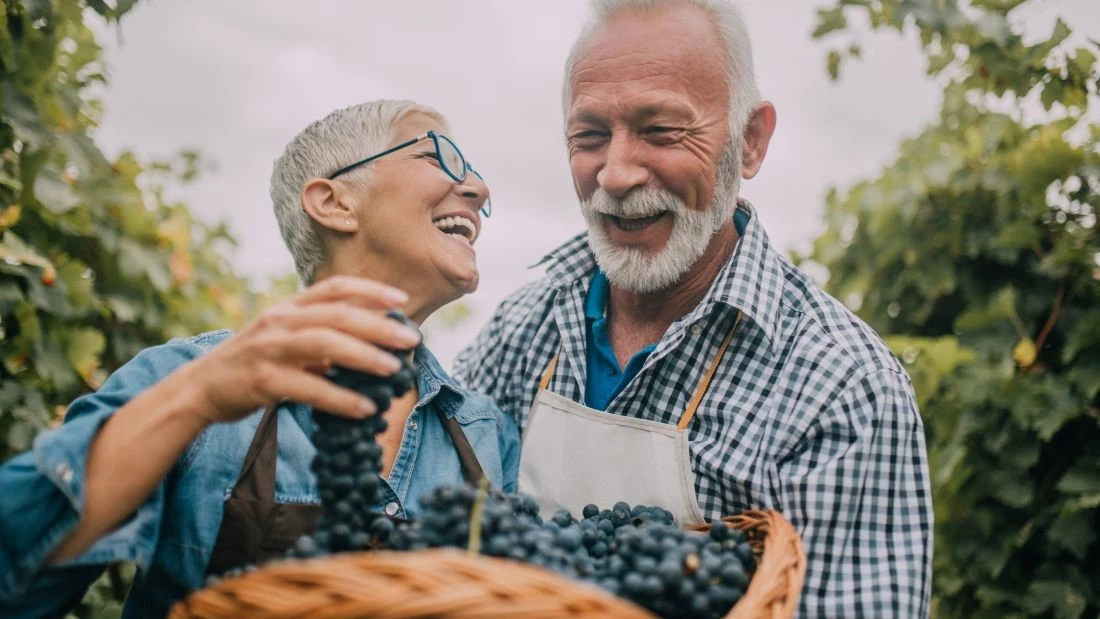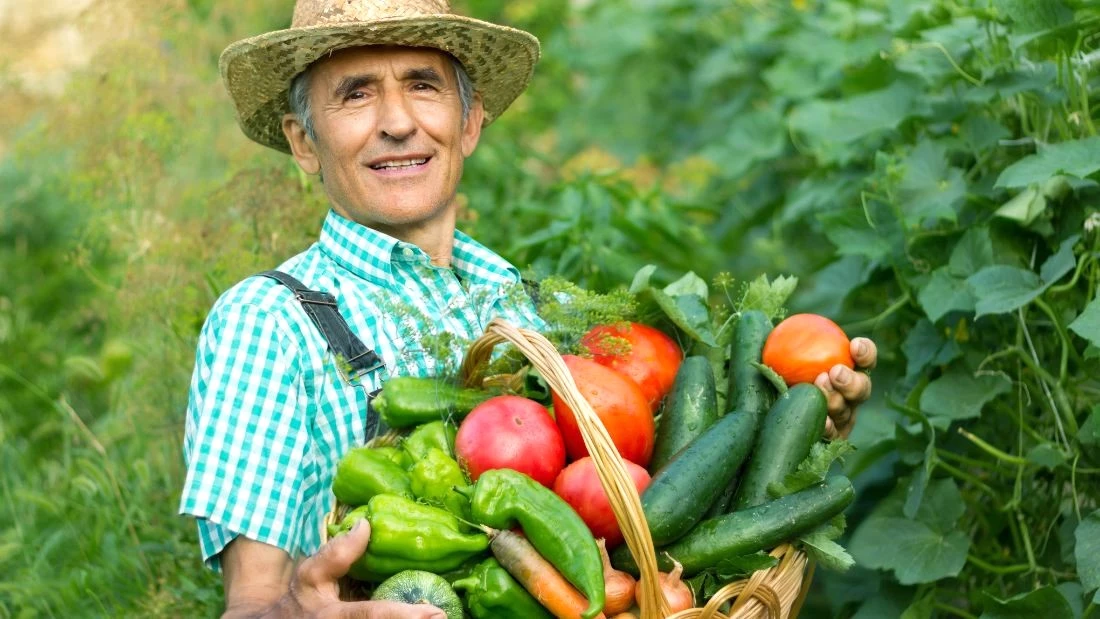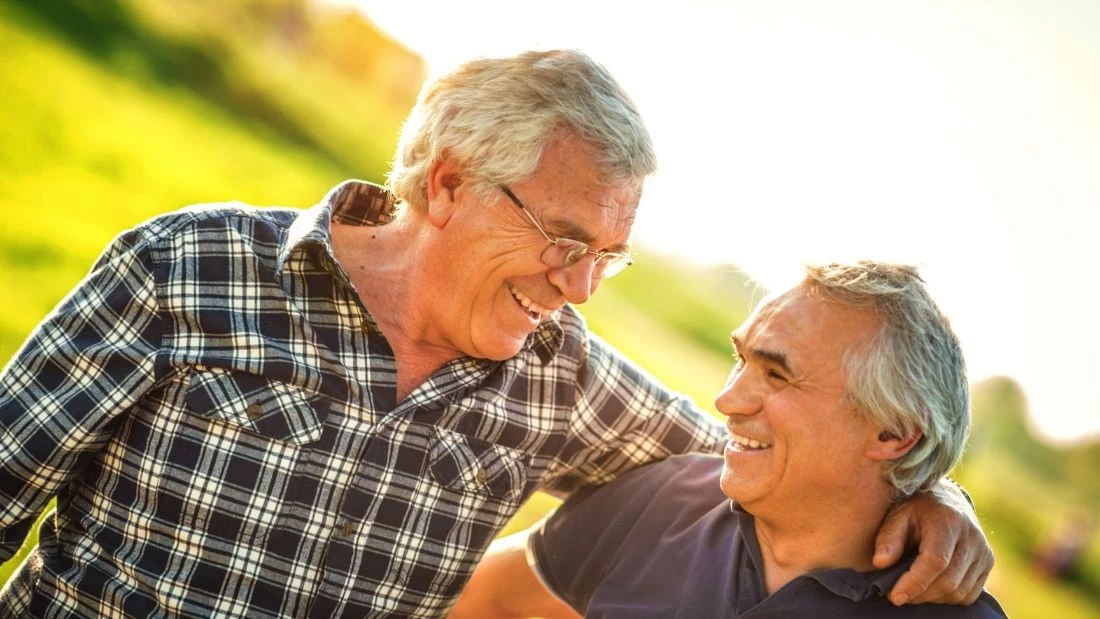How to get in the (blue) zone

Most of us don’t want to think about how long we’ll live; in fact, we seem to think we don’t have much say in the matter. Big mistake! “Less than 20 per cent of your life expectancy has to do with your genes – the rest is lifestyle,” says author Dan Buettner, who describes how two-thirds of the eight billion people on Earth die prematurely from preventable diseases. We are well below the limits of human longevity and, as Buettner says: “Most of us are leaving good years on the table”.
Buettner spent 20 years investigating longevity and identified five regions around the world where people live extraordinarily long and vibrant lives, with less diabetes, heart disease, cancer and dementia than anywhere else. These ‘blue zones’ are the subject of the Netflix docuseries, Live to 100: Secrets of the Blue Zones.
The concept of blue zones came from demographic work by Italian researcher Gianni Pes in the early 2000s. Pes discovered a region in Sardinia, Italy, with the world’s highest concentration of centenarians. He used blue dots on a map to mark longevity hotspots and in one particular area, and the dots merged together to form a blue zone.
Building on this discovery, Buettner investigated four more locations – Okinawa in Japan, Nicoya in Costa Rica, Ikaria in Greece and Loma Linda in California. Although each is very different, they all share some striking similarities that provide clues as to how to achieve a longer, healthier and happier life. There are nine common denominators of blue zones that can be adapted to suit anyone, wherever they live.
1. Plant-based
People in blue zones follow a wholefood plant-based diet, focusing on fruit, vegetables, wholefoods and pulses but in different ways. In Nicoya, there is the protein-rich, ‘three sisters’ planting system of beans, squash and corn. In Okinawa the diet features purple sweet potatoes and tofu while in Sardinian its focus is veg-packed minestrone soup and classic Mediterranean plates. In Loma Linda, 9,000 Seventh-Day Adventists make up the blue zone, a third of who are vegan or vegetarian.
Meat, fish and eggs account for a small amount of calories in blue zones and the same message comes from all of them – meat increases the risk of disease while plant foods are what’s needed for good health and longevity. Fruit, for example, reduces the risk of lung cancer, beans reduce the risk of bowel cancer and a small handful of nuts a day can add three years to your life.
2. Moderation
It’s not just what you eat that matters, but how much. The Okinawan mantra is hara hachi bu, meaning ‘eight out of ten’ – stop eating when your stomach is 80 per cent full. A wholefood, plant-based diet helps as a full plate can contain fewer calories than a small cheeseburger and may be why obesity is rare in blue zones.

3. Wine
Herbal teas, rich in anti-inflammatories and antioxidants, are a common drink in Ikaria, but when Buettner asks spritely 88-year-old Vaso Parikos what the best tea to drink is, she laughs and says “wine”. Ikarians enjoy red wine, dancing and laughing with a relaxed pace of life that ignores the clock – and we can all learn something from that. Many blue zoners (except Adventists) drink one or two small glasses of wine most evenings.
4. Move naturally
Most blue zone elders don’t rely on gadgets; they sweep the floor, chop wood, knead bread, sew and make crafts by hand. They exercise throughout the day by simply moving naturally around their homes and gardens. In Nicoya, grinding maize and kneading dough to make tortillas provides a physical workout. In Okinawa, people sit on the floor, getting up and down many times a day which helps to strengthen core muscles and reduces the risk of falling – a major cause of death in older people. Blue zoners in Loma Linda have built their community around regular physical activity. At 84, Loida Medina plays pickleball for three hours a day and values the social contact it brings.
Most blue zone inhabitants have small gardens and spend time tending their plants each day – again, gentle, natural exercise that is both rewarding and stress-relieving and helps maintain core strength and balance.
Blue zone elders tend to walk everywhere and so get regular exercise outdoors. The Sardinian blue zone is in a mountainous region where the steepness of village streets correlates with longer lifespans. On steep inclines, many houses have three or four floors, which is a lot of steps to climb!
5. Reduce stress
Although many work hard and well beyond retirement age, blue zone inhabitants make time to decompress and have lower stress levels. Okinawans pause to remember their ancestors each day; Adventists stop to pray; Nicoyans relax with their family in the afternoons after morning work while Sardinians enjoy happy hour – you won’t find any of them on the sofa doom-scrolling!

6. Find a purpose
Having a purpose in life is important for mental wellbeing and people in blue zones maintain a strong sense of purpose through work, family or community. In Okinawa, it’s called ikigai – a reason for being, while Nicoyans call it a plan de vida – a life plan and the reason for waking up every morning. Research suggests having a purpose may increase our lifespan by up to seven years.
7. Belonging
People in blue zones tend to belong to faith-based groups and devote time to their religious communities. Buettner says it doesn’t matter what religion you are so long as you participate. Eating well and taking exercise is contagious, he says!
8. Support
Living in a close-knit community with strong family bonds and regular contact with friends may be the most important secret to longevity. Studies show how social engagement and support networks promote wellbeing but also protect against cognitive decline and dementia. Although forging strong and loving partnerships is important, social support networks are also crucial to longevity. In Okinawa, a moai involves a circle of lifelong friends pooling money for when one of them may need support.
Blue zones offer relatively high levels of community support, including access to healthcare, although this doesn’t mean being rich. Nicoya is one of the poorest regions in Costa Rica yet has an efficient healthcare system that focuses on preventing disease rather than treating sickness. Blue zone elders tend to be cared for at home by relatives rather than being shipped off to care homes – which can shorten their lifespan from two to six years.
9. Find your tribe
Lastly, Buettner recommends surrounding yourself with like-minded people who are a good influence and suggests having a vegan in your circle of friends to remind you how healthy a plant-based diet is! Strong support networks cannot be underrated as loneliness can knock 15 years off your lifespan. World expert on aging, Professor Rose Anne Kenny, says having a good laugh with friends may be as important as diet and exercise. As one Okinawan elder said: “Enjoy the present. That’s important.”




